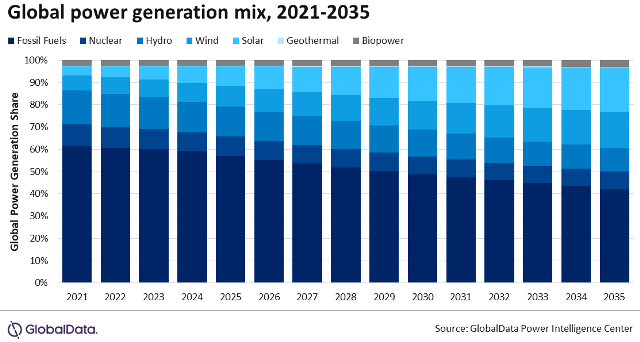The global oil and gas industry, once pushing hard for decarbonization and energy transition, is facing new challenges in 2024 as energy security concerns and economic strain take precedence.
Heightened fears over energy security, largely stemming from the ongoing Russia-Ukraine war, have driven many nations and companies to focus more on fossil fuels, causing a temporary shift in the momentum towards low-carbon alternatives.
Progress in energy transition will be slower, GlobalData said in its report called Energy Transition in Oil and Gas.
The report highlights the ongoing shift in the sector, with many oil and gas companies pursuing renewable energy initiatives, such as solar and wind power, and focusing on carbon capture, hydrogen production, and low-carbon fuels. However, several of these companies, which had set ambitious net-zero targets for 2050, now face hurdles due to global supply chain disruptions and economic instability caused by the war.
Ravindra Puranik, Oil and Gas Analyst at GlobalData, explained: “The Russia-Ukraine conflict has sparked supply chain disruptions, leading many countries to rely on fossil fuels, thereby boosting demand for oil and gas. Meanwhile, inflation and the push for energy self-reliance have somewhat slowed the adoption of clean energy.”
Despite the setbacks, many oil and gas companies remain committed to their decarbonization goals, but rising inflation, profitability issues, and high interest rates are causing delays in renewable energy projects. The industry’s focus on wind and solar power generation, alongside newer technologies like carbon capture and energy storage, underscores the ongoing effort to mitigate emissions and transition to a more sustainable energy mix.
While energy transition efforts have lost some of their initial momentum, particularly as profitability and inflation concerns weigh on renewable projects, the long-term plan for decarbonization remains. Even with periodic slowdowns, the shift towards low-carbon energy in the oil and gas industry is inevitable and will play a key role in shaping the future global energy landscape.
As the share of fossil fuels in global power generation decreases, renewable energy sources continue to grow. However, balancing energy security, economic factors, and environmental goals remains a challenge for the oil and gas sector moving forward into 2024.

